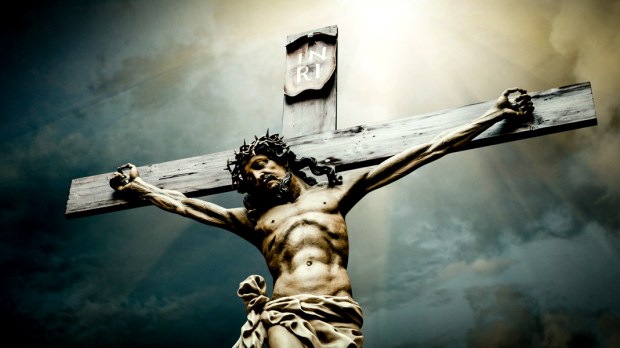Jesus cried out in a loud voice, “Father, into your hands I commend my spirit”; and when he had said this he breathed his last.” – Luke 23:46
“Can God die?”
I once asked a theologian friend to explain to me how it is possible that God, the Creator of the Universe, could die and still keep the world in existence. My friend told me it was possible because Jesus, a divine Person, is true God and true man. The Son of God died a human death, but the divinity itself did not die.
Of course that is true, and I felt satisfied for a time. But this paradoxical moment of the God-man dying on the Cross—so pregnant with meaning and mystery—has continued to fascinate me.
Have you ever meditated on the last moments of Jesus’ life on earth?
So often, we take the mysteries of our faith for granted, but it helps sometimes to wash the monotony, assumptions, and oversimplifications away and to look at our faith with fresh eyes.
Just mulling over the final moments of Jesus’ life can plunge us into a darkness of paradox and wonder, which ultimately brings us closer to the mystery of our Triune God.
The God of Life died on a Cross so that he might bring us life. Life came down to earth and faced death out of love for us. A Latin hymn from the 6th century, “Vexilla Regis” (“The Banner of the King”), captures this paradox in a poignant stanza:
Now shines the Cross’ mystery;
Upon it Life did death endure,
And yet by death did life procure.
So much of this mystery is beyond human comprehension but the pattern—death bringing about life—was made possible by Jesus’ death. This redemptive pattern repeats itself in our lives every day.
Jesus showed us how to find life—through suffering and death. It is not the answer we want to hear, but as we walk the journey of our spiritual life, we realize that we find life precisely in giving up and giving away those things we hold close and think we need more than anything. Sometimes this happens in tragedy, without our willing it or wanting it. Sometimes this happens in moments of terrible evil, moments we know God would never orchestrate, but would only allow for some unfathomable reason.
Finally, stripped of everything, we are like Jesus, naked on the Cross. But in this poverty and bare simplicity, we paradoxically find joy and peace. In the midst of pain, sometimes excruciating pain, we are amazed to find signs of vigorous life.
Through the Way of the Cross in our lives, we find the grace of the Resurrection.
This ideal seems so far away for most of us who cling to little things like our lives depend on it—our favorite TV show, our self-image, likes on social media, our talents, or our health—you name it, we think we need it to be happy. Our lives are full of little loves, good and bad, that vie to edge God out and put themselves at the center.
But every once in a while, usually through a great suffering or sadness, we are thrust out of the revolving door of passing time in our lives. And through the unexpected vehicle of this suffering, if we are open, we receive great graces to reprioritize and put God first. Sometimes we would trade these insights in a moment to have back whatever or whoever was torn from us. But sometimes that is impossible, so we thank God for the light he has shone in the darkness.
Recently, a religious sister, a Daughter of St. Paul, passed away in India. Before she died, she told her sisters, “I am happy! I have nothing left because I have given everything to God … I am ready to die.” This is the paradox of the spiritual life, to which we are also invited.
Like Jesus, we are invited to divest ourselves, or to at least allow ourselves to be divested, of every single thing we love in our lives, even the people we love most, knowing that we will see them again. We do this so that in our last moments we can say with great joy, “Father, I have given you everything, the good, the bad, even some of the people I love most, and now I give you the last thing I have, my life … Into your hands I commend my spirit.”

